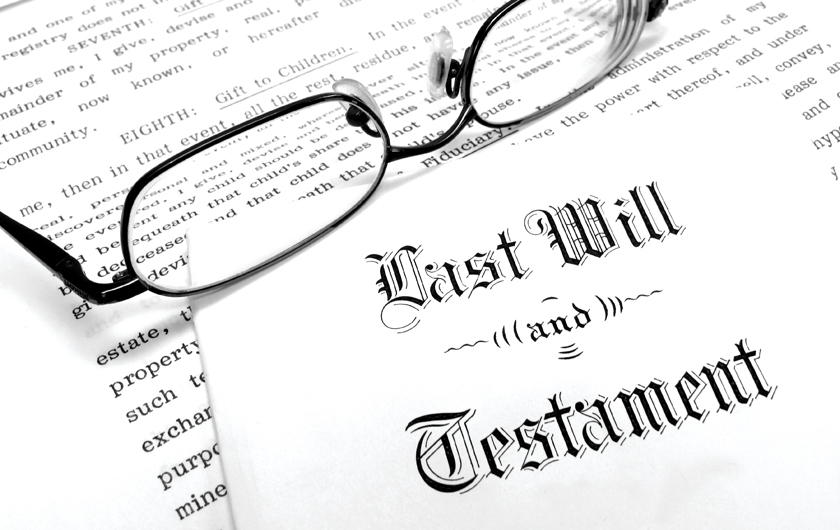Here’s what you need to know about the financial implications of remarrying
By Olev Edur
It’s a sign of the times—and of changing Canadian mores. According to Statistics Canada census data, the incidence of divorce or separation among those aged 65 or older has tripled over the last 30 years. While only four per cent of 65-plus Canadians divorced or separated in 1981, by 2011, the proportion had risen to 12 per cent.
This trend may be saddening, but there is a bright side. The StatCan data also show that most of those retirees found new loves: 76 per cent of divorced/separated males aged 65-plus and 55 per cent of their female counterparts subsequently either remarried or entered into new common-law relationships, about three-quarters of them going the wedding route.
The ability to make such reconnections at that age speaks to the indomitable resilience and capacity for affection of the human spirit, but some words of warning are in order. Many retirees are unaware of the unique financial implications of a second go-round, and unless they take some preventative actions before saying “I do,” their hopes and expectations—and those of their children—may be irretrievably squandered.
“Entering into a new marriage later in life is a very different situation from when you originally married, maybe when you were in your 20s,” says Christine Van Cauwenberghe, assistant vice-president of tax and estate planning at Investors Group in Winnipeg. “You’re likely to have children from that previous marriage, and you’re likely to have more assets than when you were in your 20s.
“If you do have kids, then by remarrying you’re forming a blended family,” Van Cauwenberghe says. “In this situation, you’re going to have to balance the needs of the new spouse and the needs of your kids. This is particularly important when it comes to estate planning.
“When you married the first time, you may, for example, have added your spouse as a joint owner of your RRSP and perhaps some other assets,” Van Cauwenberghe says. “That can make sense when you’re younger, but if you do it now when you’re older, the lion’s share of your estate may end up going to your new spouse, and the kids will get disinherited. All those jointly owned assets will bypass your estate and go directly to the spouse.
“Usually it’s done inadvertently, but it can be very painful for the kids. It can lead to a lot of grief and possibly a lot of litigation. Joint ownership generally isn’t appropriate if you’re remarrying.”
Beneficiary Designations Troublesome
The consequences can be much the same when it comes to beneficiary designations on assets such as registered savings plans and life insurance policies, the proceeds of which will also bypass the estate and go directly to the beneficiary. In fact, failing to deal with this issue properly can have even worse consequences.
“If you’re planning to get remarried, you have to be very careful with beneficiary designations,” Van Cauwenberghe says. “Say, for example, that you had designated your previous spouse as the beneficiary of your $300,000 RRSP or RRIF, and then you forgot to change it. When you pass on, your ex-spouse would get the gross amount in the plan. But there would be no tax-free spousal rollover because she or he is no longer your spouse, so your estate would get a tax bill for that $300,000 in extra income, greatly diminishing what’s left for the kids.”
As a result, before remarrying, you need to revisit the status of all your accounts and other assets to ensure that any designations are in keeping with your changed circumstances. “You have to review all your beneficiary designations and make sure they’re consistent with your new plans,” Van Cauwenberghe says.
Indeed, Van Cauwenberghe advises anyone thinking of remarrying to avoid all direct transfers of wealth because they can skew the results that may be intended in your will. “I don’t recommend joint ownership or beneficiary designations in remarriages, because if you leave everything directly, there’s nothing left to be divided in the estate. You should do it all through the will instead.”
Don’t Assume Compliance
Les Kotzer, a wills lawyer with Fish & Associates in Thornhill, ON, agrees that direct transfers can be troublesome.
“Say you want to leave everything to your kids through your will,” he says. “Then you put the house into joint ownership with your new wife, you make her the beneficiary of your life insurance, and you put the bank accounts into joint ownership. Now everything you own is going directly to the spouse because those arrangements—joint ownership and beneficiary designations—override the will. Everything is spoken for and there’s nothing left for the kids.”
Furthermore, having left all your assets to a new spouse through beneficiary designations or joint-ownership arrangements, you can’t blithely assume that he or she will do as promised and ensure, once you’re gone, that your kids get their share.
“Say you are remarrying and you both have a couple of kids, so you decide to leave everything to each other through your wills with the proviso that eventually when you’re both gone, all your assets will be distributed equally to the four kids,” Kotzer says. “Well, once one of the spouses dies and those assets move to the survivor, he or she is under no obligation to distribute those assets as promised in the will.
“People think these commitments are legally binding because they’re in their will, but they’re not. All those assets now belong to the new spouse, and he or she can remarry or make a new will leaving the assets to whomever. Your kids can be cut out of the new will and the stepchildren will get everything.
“It happens a lot. You’d be surprised at how people can change when they get their hands on that money, people you trust and believe would never do such a thing.”
The same can apply when it comes to grandkids.
“We know a case of a grandfather who had accumulated a lot of wealth,” Kotzer says. “He had only the one granddaughter, and when he was in his 80s, he told her, ‘One day all this will be yours.’ His will left everything to her mum, with the instructions that the granddaughter would get it all when her mum passed on.
“Mum left everything to Dad, though, and he went to grief counselling and met a friend, and they slowly grew close. Then one day the granddaughter went to Dad and asked for some of that money to start a business. Dad said, ‘Sorry, I can’t help you. I’m getting married to Jill [not her real name], and she has three kids who need money to go through college. Plus we’ll need a bigger house.’
“The granddaughter replied, ‘But I need the money for the business, and it’s my money because Grandpa promised it to me.’ Dad said, ‘No, it’s my money now, and if you don’t like it, you can move out.’ So she did, and that was the last time she ever spoke to her father. The moral is, you really need to think about how to protect the kids.”
Marriage Revokes Prior Wills

Photo: iStock/BrianAJackson.
Another common oversight among remarried seniors is to assume that because their existing will leaves everything to the kids, and that because any references to the ex-spouse are automatically nullified through divorce, they can leave the will as it is and the kids will get their due. This is also a misconception, with possibly untoward results.
“Remarriage voids all previous wills, except in Quebec, British Columbia, and Alberta,” Van Cauwenberghe says. “In a divorce, the ex-spouse is treated as if he or she were predeceased, and any references in the will to that person are eliminated. But a remarriage voids the whole will. You may think that because the old will leaves everything to the kids, it’s okay, but it’s not. You have to redo the will or you will die intestate.”
This voiding provision raises another concern for newly reweds.
“Quite often, people will draft a new will before they tie the knot,” Van Cauwenberghe says. “But when they get married, this will is voided, too, unless it is specifically stated in the will that it has been done ‘in contemplation of marriage.’ That wording is very important.”
An even worse scenario may ensue if you separate from your ex without getting a formal divorce, and then perhaps enter into a new common-law relationship but fail to change your will and/or beneficiary designations. In that case, your ex could end up inheriting a big chunk or even all of your estate, possibly leaving only the tax bill.
“Separation doesn’t revoke a will,” Kotzer says. “And even if you make a new will, the spouse could successfully challenge it.”
Kotzer adds that in Ontario, a spouse has six months to challenge or accept the will and normally is entitled to the first $200,000 of the estate, with the remainder being split with any kids. In addition, a spouse may be able to claim further money on the basis of financial dependency. And furthermore, in many provinces, surviving spouses have dower rights, entitling them to live in the house they lived in with their spouse for the rest of their lives, meaning that they could move right back into your new family’s home.
Investment holdings can be up for grabs. “Say you get remarried and then you receive an inheritance of a million dollars from your dad’s estate,” Kotzer posits. “You invest it wisely, and over the next 10 years it grows to $1.5 million, so you want to leave it all to the kids. Your new spouse could argue that half of the $500,000 gain belongs to him or her because it was acquired during the marriage.”
Even personal effects may be on the line in a remarriage. Kotzer cites the example of a mother who passed on and left everything to her kids through the will, so the kids came to the house where the stepfather was still living and told him not to use the furniture because it now belonged to them.
“They kicked Dad right out of his rocking chair,” Kotzer says. “So you need to keep a record of who bought what during the marriage.”
In addition, you might think that you can avoid problems by living common-law rather than getting married, but that isn’t always the case. While in some provinces common-law partners do not enjoy the same benefits as married partners, in others, such as Alberta, common-law partners acquire the same inheritance rights as spouses after living together for three years. And in some cases, particularly where the two partners’ finances are unequal, a surviving common-law partner may be entitled to spousal support or child support for his or her kids from your estate.
Then there’s the issue of what’s called constructive trust. A common-law partner or a spouse may be able to challenge your will on the basis that he or she contributed in some essential way to the added value of your assets—having provided money for home maintenance, for example, or having done work on the house, such as painting and redecorating—and therefore deserves some compensation. “This can get very complex,” Kotzer says.
Draft a Domestic Contract
The bottom line is that you should take the necessary actions to avoid any problematic outcomes before you get married again or enter into a common-law relationship. On top of drafting a new will, reviewing beneficiary designations, and avoiding joint-ownership arrangements, both Kotzer and Van Cauwenberghe suggest you draft a domestic contract—either a prenuptial (for marriages) or cohabitation (for common-law arrangements) agreement—that spells out in detail what belongs to whom and what your goals are for your kids, just in case of a subsequent split.
“When you were younger, you probably had no need for this type of contract because you had no children and probably very few assets,” Van Cauwenberghe says. “But now, you really need to deal with the question of what happens when you die or you get divorced again.”
You need to be careful in drafting this legal document. Both parties to the contract must be fully involved, with lawyers representing each. Lawyers are important because the document must be worded in a way that ensures it is legally binding, without contradictions and/or loopholes that may render it worthless.
Van Cauwenberghe cautions that if you enter into a domestic contract and agree to keep your assets separate, you must avoid any actions in future that might render it meaningless. “If you’re going to keep your assets separate, don’t start adding joint-ownership arrangements, because that will completely contradict any planning that was done.”
Michelle Kotzer, Les’s daughter and also a wills lawyer with Fish & Associates, points to the example cited above of a million-dollar inheritance growing to $1.5 million. “Unless you protect this under a domestic contract, your spouse could argue that because the $500,000 growth was earned during the marriage, half of it belongs to him or her,” she says. “You need the contract to protect your income as well as capital, but you also have to be careful to keep the inheritance in a separate account. Never put it into a household account. You cannot comingle your assets and still have them considered separate.”
Another estate-planning tool that can be useful in some situations is a trust on behalf of the kids. If, for example, one spouse has most of the assets in the marriage, he or she can arrange to have the assets placed in trust so that the surviving spouse will have something to live on for the rest of his or her life without actually owning the assets. When the survivor dies, the remaining assets pass to the children of the first spouse.
Similarly, if you want to ensure that your grandkids get your assets, a trust can be arranged to accomplish that.

Another issue among newlywed retirees is the question of who looks after you should you become disabled.
“If you get remarried, you need to update your Power of Attorney,” Van Cauwenberghe says. “You should also think about critical illness and long-term-care insurance.”
Finally, all three advisers stress the importance of getting professional assistance in rearranging your affairs.
“You can’t assume that you need to structure your will the same way you did your first will,” Van Cauwenberghe says. “You need to find a lawyer with a Trust and Estate Practitioner designation and you should also sit down with your financial adviser because there are many legal as well as financial factors to consider.”
Photos: iStock/Lisafx (cover) iStock/VankaD (man hand and paper) and Eduard Lysenko (woman hand).







